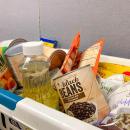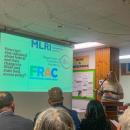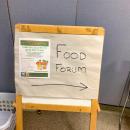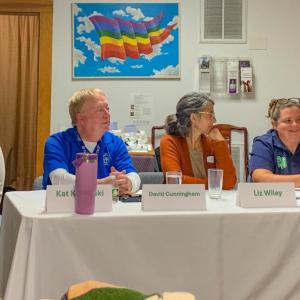Food access forum brings information, solutions to Middleboro
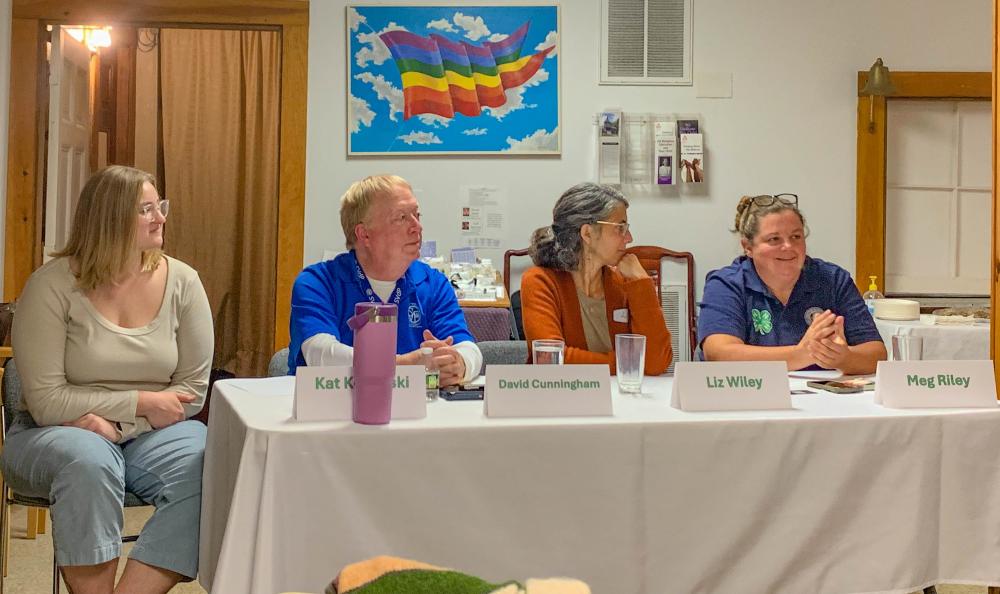 The four speakers sit together as attendees ask questions following their presentations.
The four speakers sit together as attendees ask questions following their presentations. 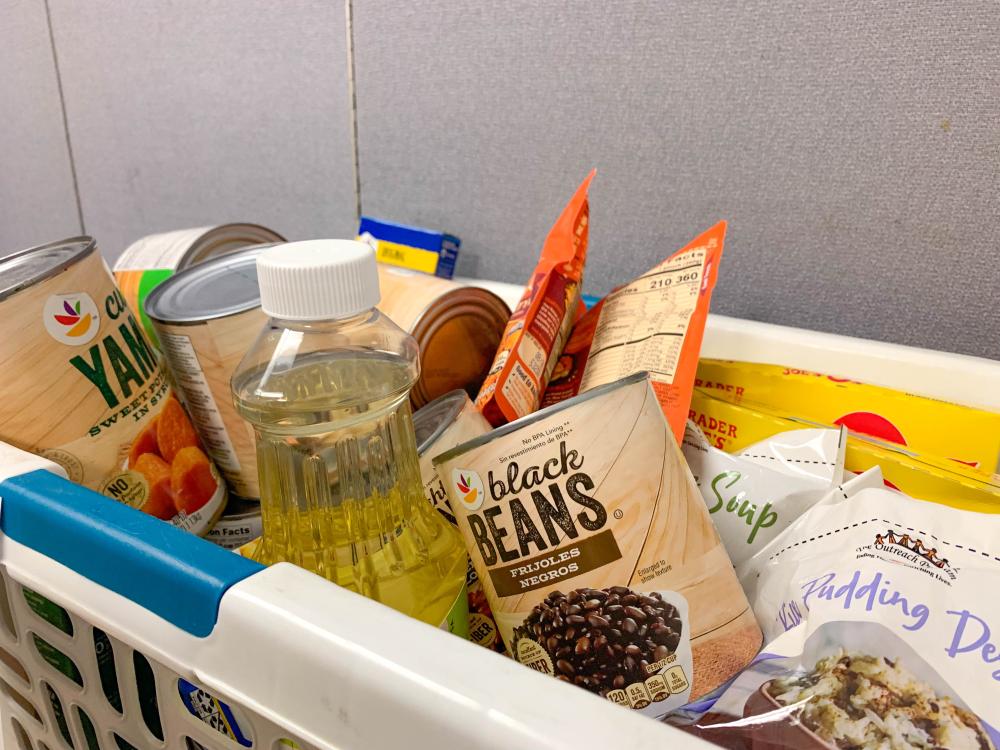 Attendees were asked to donate a shelf-stable food item.
Attendees were asked to donate a shelf-stable food item. 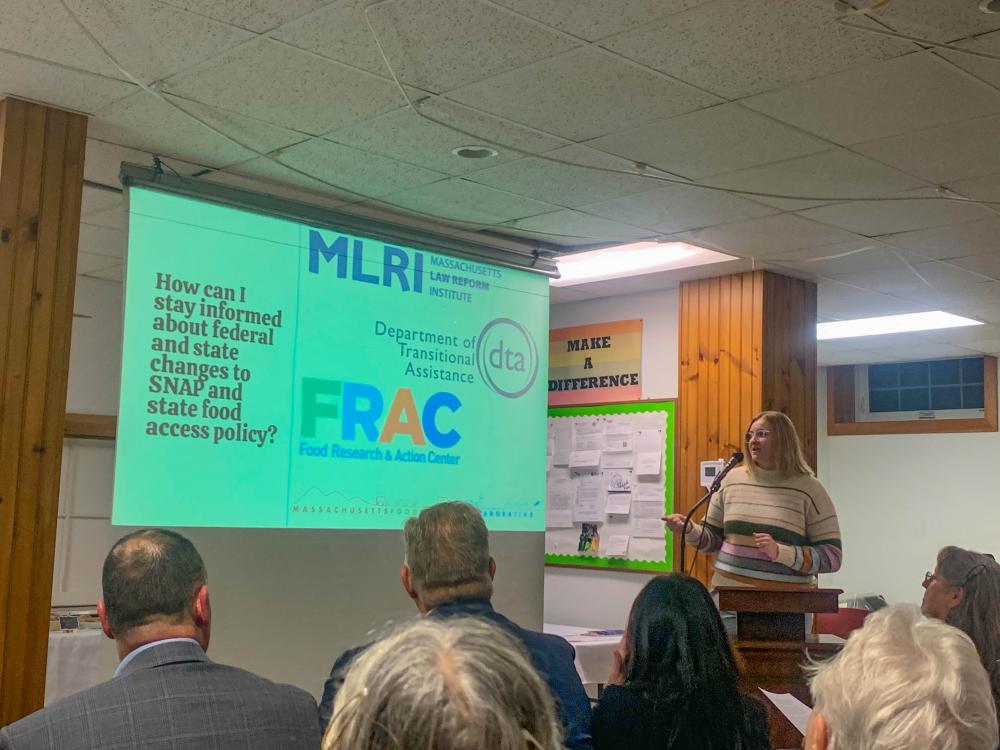 Kat Kowalski speaks about food insecurity at the Oct. 24 meeting at the First Unitarian Universalist Church. Photos by Grace Roche
Kat Kowalski speaks about food insecurity at the Oct. 24 meeting at the First Unitarian Universalist Church. Photos by Grace Roche
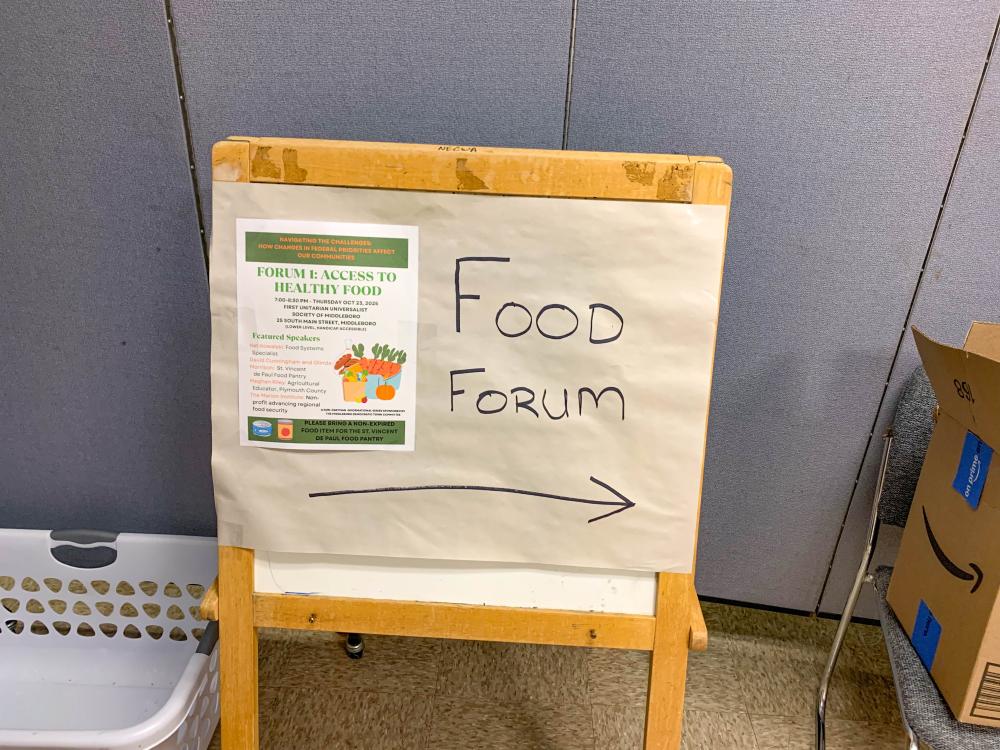 A sign points visitors to the forum.
A sign points visitors to the forum. 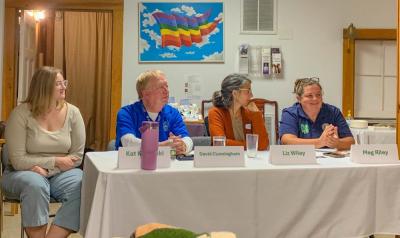 The four speakers sit together as attendees ask questions following their presentations.
The four speakers sit together as attendees ask questions following their presentations. 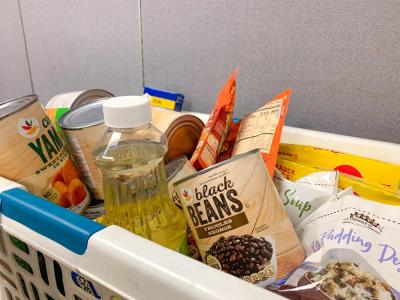 Attendees were asked to donate a shelf-stable food item.
Attendees were asked to donate a shelf-stable food item. 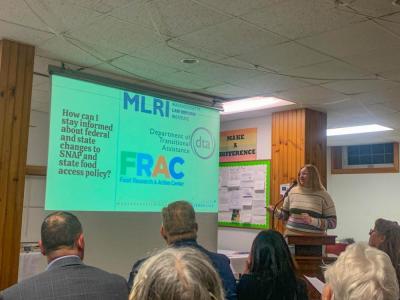 Kat Kowalski speaks about food insecurity at the Oct. 24 meeting at the First Unitarian Universalist Church. Photos by Grace Roche
Kat Kowalski speaks about food insecurity at the Oct. 24 meeting at the First Unitarian Universalist Church. Photos by Grace Roche
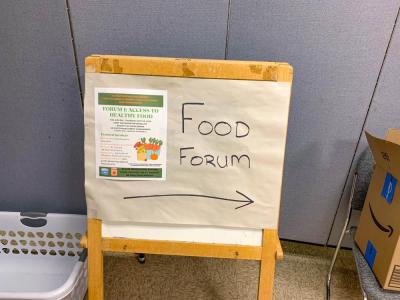 A sign points visitors to the forum.
A sign points visitors to the forum. MIDDLEBORO — Amidst federal budget cuts and the recent government shutdown, food insecurity concerns have intensified as programs lose access to funds.
Several experts gathered at the First Unitarian Universalist Church, Thursday, to discuss how federal policies have impacted Middleboro, and what actions concerned residents can take to help themselves and their neighbors.
Kat Kowalski, a policy systems and environment specialist at the University of Massachusetts, spoke about how SNAP benefits have changed under the Trump administration and what resources are still available.
She said the goal of her organization is to educate people on eating healthy on a budget, and to spark change in the systems and policies that perpetuate food insecurity.
Due to Trump's “big beautiful bill,” restrictions to SNAP benefits have tightened.
Kowalski said the bill makes it more difficult to qualify for benefits, including stricter work requirements such as accepting any job offer and increasing the working age from 54 to 64.
Due to the government shutdown, many federal programs have lost funding and have been closed. Without additional funds, many states — including Massachusetts — will lose the funds needed to disburse SNAP benefits in November.
“I know things might feel a little uncertain and scary with the changes at the federal level right now, but I want to frame this as we have a lot more collective resources than we do alone,” Kowalski said.
She said starting small and getting involved in the community are the best ways to enact change. She encouraged listeners to volunteer what they can — be it time, skills, money or food.
The best way to get involved, Kowalski said, is to connect with others.
“Be nice, smile at people and get to know your neighbors,” she said. “Talk to people that you see every day and you’ve never had a conversation with.”
She also encouraged people to contact their local and state representatives, while federal representatives are currently unavailable.
David Cunningham, the director of the Sacred Heart Food Pantry, and Liz Wiley, the executive director of the Marion Institute, shared ways their organizations have provided aid to their communities.
About 28% of families in Middleboro are food-insecure, meaning they don’t know where their next meal will come from, according to the 2025 Greater Boston Food Bank’s Statewide Food Access Report. Cunningham said he sees about 300 of these families come to the pantry each month for food assistance.
He said the pantry is part of the Greater Boston Food Pantry program, which supplements donations of food and money. However, the food it provides will not be enough to feed people without the help of SNAP funds.
“When we talk to folks who sign up at the food pantry, we tell them that we’re going to give them maybe two to three weeks of food, and you really need to apply and get SNAP benefits,” Cunningham said. “It’s a very complimentary and critical element of getting through the whole month.”
Wiley presented several outreach programs the Marion Institute has begun, including gleaning excess produce, regenerating poor quality farmland and educating elementary school students on how food is grown.
She also discussed a lesser-known benefit SNAP recipients are eligible for. She said anyone who received funds for food also qualifies for the Healthy Incentives Program which provides additional funds to purchase fresh fruit and vegetables.
She said her organization believes health equity — including access to nutritious food — is a right, not a privilege.
“One thing the Marion Institute does a little bit differently is that we’re trying to focus on this from a lens of nutrition security,” Wiley said. “I think food insecurity is one thing — and yes, we need to feed people and put food into people’s bellies, but we also need to think about the quality of the food that we’re putting into people’s bodies. ”
Meg Riley, Plymouth County’s agricultural extension educator, closed out the evening by explaining the other side of federal budget cuts.
While area organizations have cobbled together solutions to keep farmers and SNAP recipients afloat, she said these solutions are unsustainable long-term.
Riley argued even though Massachusetts prioritizes programs to support agriculture and food access, it is important for people to continue advocating for them regardless of who controls the federal government.
“It really doesn't matter who is in office, it doesn't matter what we’re working with. Agriculture and the ability to protect our national security by having enough food to feed people is so beyond politics,” she said.














